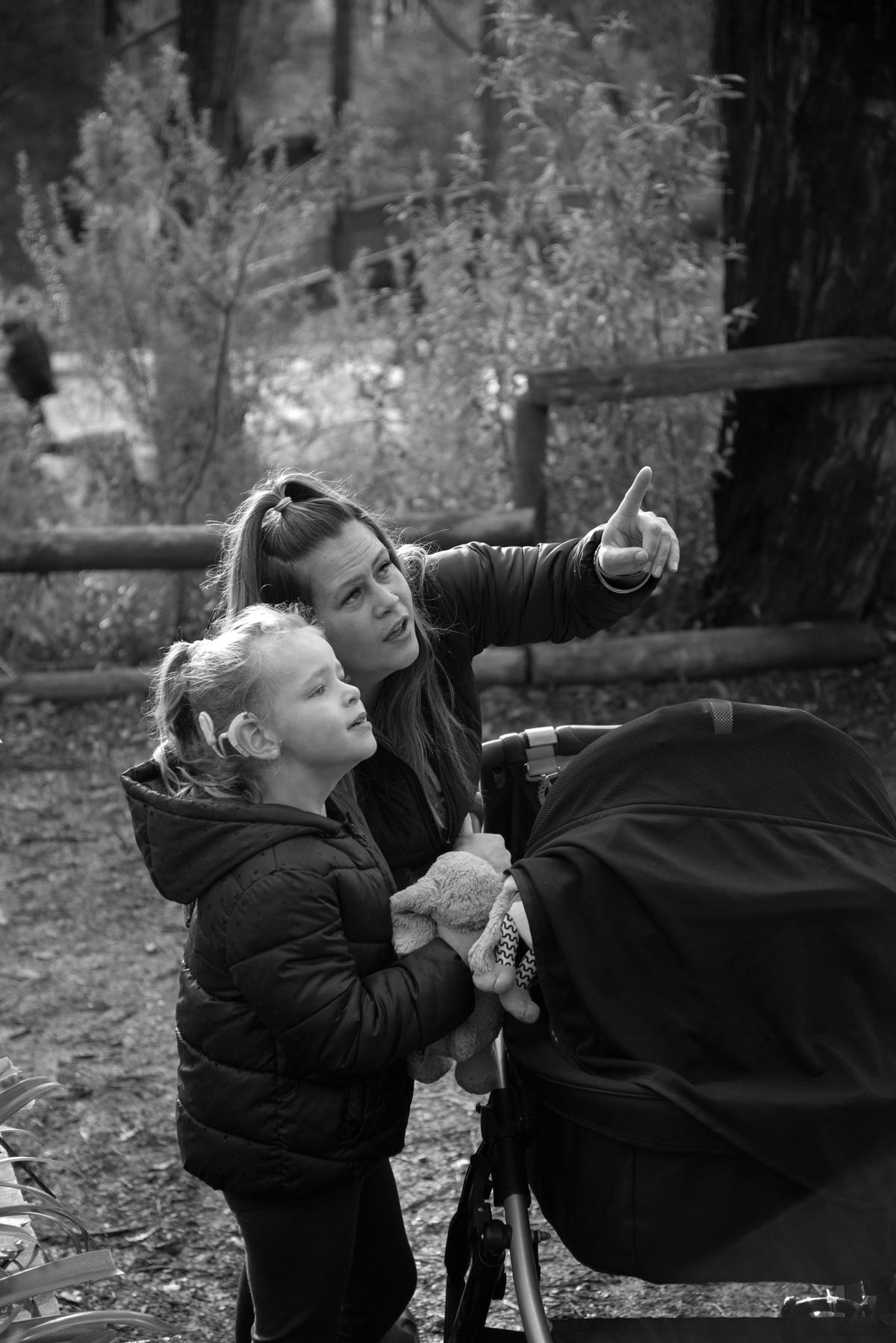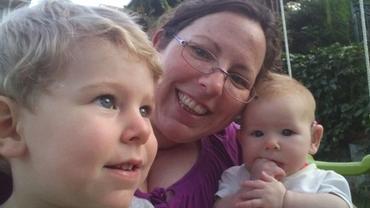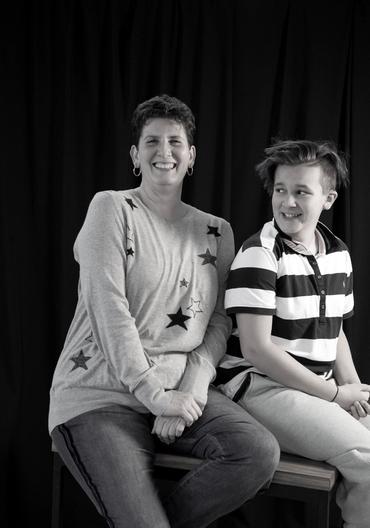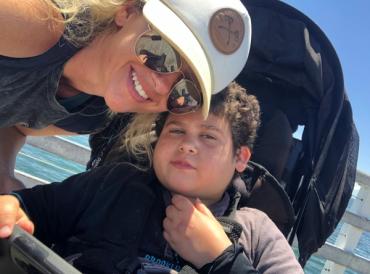Top Ten Burning Questions
When we created this website, Deaf Children Australia wanted to be sure we addressed what was most important to parents and caregivers of a child recently diagnosed as being deaf or hard of hearing. We published a survey inviting 500 participants and more than 70% of respondents were parents telling us what they most wanted to know, or worried about, when they first received their child’s diagnosis. Here are the top 10 responses we received, with some answers and links to other helpful resources.

Being part of a community is important for your wellbeing and gives you access to practical help and support. When your child is first diagnosed, it’s natural many parents want to meet others who’ve had a similar experience.
Contacts in the deaf community can help families with mentorship and guidance, emotional support, recommendations and advice.
Deaf Children Australia’s Parent Mentor Program supports parents who have recently received their child’s diagnosis or are already on that journey. The program connects you to a parent with the skills, training and lived experience to support and encourage you.
If you’d like to connect with a Parent Mentor, please call 0424 782 027 or email Rosy.Bratt@deafchildren.org.au
Learn more about our Parent Mentor Program here.
Families of deaf and hard of hearing children, and the children themselves, highly value the sense of belonging they gain from being part of the Deaf community.
Supported by Deaf Children Australia, the parent-run POD Support Network provides opportunities for families and carers with children who are deaf or hard of hearing to connect.
Joining a POD group gives your child the chance to have fun, practice signing, and build friendships within the Deaf community.
Learn more about the POD Support Network here.
You’re also welcome to participate in our active Facebook group.
DeafNav also keeps an online directory of community groups for people who are deaf or hard of hearing. Your GP, early childhood intervention provider, NDIS support coordinator, speech pathologist and Teacher of the Deaf may also be aware of groups and/or other families in your area.
It’s important all children have opportunities to participate in fun, healthy activities such as sports. These help them build confidence and important skills such as teamwork, problem solving and socialising.
As a parent, you can help by:
- Encouraging your child to choose a sport or hobby and give it a go. Reassure them that there are ways around hearing problems and the rewards are worth it.
- Talking to the club or coach – let them know that your child is deaf or hard of hearing and discuss options for communication. You might like to provide some tips for team staff, such as facing your child when giving instructions and ensuring they have your child’s attention before speaking. The coach and/or team may even be able to incorporate some signs into their communication.
- Figure things out as you go – monitor what is working well and what isn’t and change strategies accordingly. For example, if team briefings are proving difficult, your coach may be able to provide some one-on-one instruction for your child. Maybe they could use some gestures to identify the sounds involved in the sport, such as whistles or calls.
Deaf Sports Australia has more information about sports for people who are deaf or hard of hearing. This includes Active Deaf Kids – a sport initiative that supports participation of children who are deaf or hard of hearing in all levels of sports.
Learn more on the Deaf Sports Australia website.
Most people who are deaf or hard of hearing work and earn a living. Deaf Children Australia have a program that supports young people who are deaf or hard of hearing to transition from school into employment or further training.
Our School Leaver Employment Support (SLES) can help your child prepare for the next stage of their journey with funding from their NDIS plan.
Find out more about School Leaver Employment Support here.
We also have a specialist employment service with a dedicated team who support deaf and hard of hearing job seekers. The Sign for Work team can help you address barriers to finding the right job and access supports to make your workplace more inclusive.
Learn more about our free Sign for Work service here.
There’s no guarantee any single piece of advice is the best one, but there are helpful ways to think things through and make an informed decision. Firstly, consider the quality of the advice. For example, advice based on high-quality research findings holds a lot more weight than something you read on an influencer’s Facebook page.
Secondly, try asking several people for their opinion. If your GP, speech pathologist, audiologist and paediatrician all offer the same advice, it’s more likely to be right.
Thirdly, there’s a place for trusting your gut instincts. As a parent, you know your child better than anyone. Don’t let someone pressure you into making a decision if it feels uncomfortable. You can always seek out more information before deciding.
And remember, you can always change direction if things aren’t working out how you’d envisaged.
Read more about making informed choices about communication here.
One of the most important early decisions you’ll need to make is how to communicate as a family. Every family is different, and the choice you make will depend on your circumstances.
We’ve dedicated a section to communication in the family, including links to Auslan learning resources and more information about early signing. Find it here.
Bullying is a serious and complex topic that impacts many peoples’ lives. Unfortunately, statistics show many children and young people are affected by bullying.
However, there are things you can do to build your child’s resilience and respond if bullying (including cyberbullying) occurs.
The Australian Government has an entire website dedicated to the subject of bullying. At Bullying. No Way!, you’ll find loads of information to help you understand, prevent and respond to bullying behaviour.
This article by Supporting Success for Kids With Hearing Loss also contains helpful advice for preventing and dealing with bullying.
Many parents understandably wonder how they’ll cope with the ‘new normal’ in their family. While the diagnosis often seems overwhelming at first, the good news is that families do go on to cope – and even flourish – despite the changes.
You’ll find some helpful advice about what to do right after receiving your child’s diagnosis on this page.
This article by raisingchildren.net.au discusses some common feelings parents experience when their child is diagnosed as having additional needs.
Here are links to some other resources you may find helpful:
If you continue finding it difficult to cope, seek professional support. Seeing your GP is a good place to start. They can refer you and/or your family to a provider or service who can help. Professionals such as psychologists and social/family support workers can not only offer counselling, but also tips and advice for helping your family cope with your new situation.
There’s no single answer to this as it depends on so many variables. But this two-sided question really reflects a singular concern – will I be able to communicate with my deaf or hard of hearing child?
The answer to this is a resounding ‘yes’! Regardless of whether your child has any hearing, or ever learns to speak verbally, they are wired to communicate from birth.
Communication is such an important topic, we’ve dedicated several pages to it. Find out more using the links below.
The NDIS is another new thing families often have to grapple with after receiving a diagnosis. It can take a bit of time and effort to get your head around the NDIS, but doing so is well worth the effort. It will help your family access key supports and services that give your child the best chance of fulfilling their potential.
We’ve worked with the NDIS to create some clear, easy to follow advice to help you get started.
Learn more here.
And remember, you don’t have to go it alone. Deaf Children Australia offer a support coordination service that can help you get the most from your NDIS plan, link you with appropriate service providers, and achieve your goals. Our team have skills in a variety of communication methods, including Auslan.
Find out more about NDIS support coordination here.



